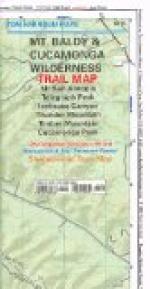“If I didn’t know you, Cyrus, I’d say you were making up as you went along,” answered Neal. “It seems one of those things which a fellow can scarcely believe in. Hulloa! What’s that?”
A loud report, like the bang of a gun, made all the boys, who had been standing very quietly, gazing at the dam, suddenly jump.
“It’s only a beaver striking the water with his tail,” laughed Cyrus. “He has been swimming about somewhere up-stream, and has scented us, and dived. I have heard one do that a dozen times in the night, if he detected the presence of man; but it’s very unusual in the daytime, for they rarely venture out in broad light. In diving, if suddenly alarmed, they strike the surface of the water a tremendous whack with their tails, as a signal of alarm, making this report, which in still weather resounds for a great distance.
“I’m very glad you heard it, boys; for your chances of seeing the master beaver or any of his colony are mighty slim. But we’ll probably come on their lodge a little higher up.”
Above the shallow water where the dam was built, the stream widened into a broad, deep pool. About fifty yards ahead, in the centre of this, was a tiny island. On its extreme edge Joe pointed out the beaver lodge. It was shaped something like a huge beehive, being about a dozen feet in diameter and five feet high. The outside seemed to be entirely covered with mud and fibrous roots, through which the sticks which formed its framework poked out here and there.
“The doors are all underwater,” said Cyrus, “and so far down that they’ll be beneath the ice when the stream freezes in winter. Otherwise the beavers could not reach their pile of food-wood, which they keep at the bottom, and would starve to death. They are clerks of the weather, if you like. They seem to know when the first hard frost is coming, and sink their stores a day or two before. Man has not yet discovered their mysterious knack of sinking wood, and keeping it stationary through many months.
“They feed on the inner bark of poplar, white birch, and willow trees. In autumn they fell these along the banks, generally so that they will fall into the water, tug and push them down-stream, and float them near to their lodges. If the trees are too big to be easily handled, they saw them into convenient lengths.”
“I call it tough luck, not being able to get a sight of the animals, after seeing so much of their works,” grumbled Royal.
“Ye might wait here till midnight, and not have any better,” said Joe. “That fellow’s tail was like a fire-alarm to them. They ain’t to home now, you bet! They’ve dusted out of their house as if it was on fire; and they’ve either dived to the bottom, or hidden themselves in holes along the bank. Guess we’d better be moving on. It’s a’most time to think about making camp.”
“The beavers have been working here!” exclaimed the guide a few minutes later, as he strode ahead. “These white birches were felled by ’em; and a dandy job they did too.”




